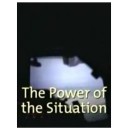The Power of the Situation
 In the early 1970s, Craig Haney, Curt Banks, Carlo Prescott, and Philip Zimbardo conducted a landmark situational study at Stanford University. The experiment tested the fundamental attribution error: our tendency to attribute causes of behavior to personal factors, underestimating the influence of situational conditions.
In the early 1970s, Craig Haney, Curt Banks, Carlo Prescott, and Philip Zimbardo conducted a landmark situational study at Stanford University. The experiment tested the fundamental attribution error: our tendency to attribute causes of behavior to personal factors, underestimating the influence of situational conditions.
For this study, a small group of college students volunteered to be subjects and were carefully tested for sound psychological and physical health. Half of the students were randomly selected to act as prisoners, the other half to act as guards. The study took place in a simulated jail facility in the Stanford University Psychology Department.
Once the study subjects entered the simulated jail, uniforms, rules, and other details distinguished the two groups from each other, and blurred the line between the reality of the study and life in prison. The students spent much of the day cramped in tiny cells, undergoing physical trials, and enduring the overall claustrophobic atmosphere of a small jail 24 hours a day. The guards, however, were allowed to return to their homes and normal surroundings after their shifts.
What happened during the study, originally planned to last two weeks, was more dramatic than anyone had anticipated, even the researchers themselves. (Excerpt from learner.org)




Interesting, but in most any experiment there are usually outliers, results that stand outside the majority of data points. Psychologist trying to give evidence for their theories tend to ignore such results or make up statistical methods to exclude them. These outliers explain why a few say to hell with authority if they believe authority to be doing wrong things or see that the result will be negative. For instance they chose not to participate in the Nazi party by leaving the country. Or the Calif. high school class experiment where they started a similar party to the Nazis, by some other name, which sucked up some of the townfolk as well. There were a couple of kids that felt it would lead to no good and said so and tried to convince others, to little avail. Fortunately the teacher had a big rally at an auditorium to introduce the national leader of the new organization and when the auditorium full of wannabes were addressed and quieted, a film of Hitler was shown. Nice job, teach. Would make a good docu for this site.
Anyway, even though the situation can affect a percentage of the people, it would seem more useful to find out why some are not so easily manipulated by "authority figures" in unjustifiable situations. Then provide that information to parents. Govt funded schools would certainly abuse that information to create even more adherence to authority.
Oops! They already figured it out. Emotionalization. If they can find ways to emotionalize a student or the population, such as presenting an unjustifiable action that elicits a strong reaction, knowing that emotion can often over ride logic in many people, they can manipulate them. Such was the case with the World Trade Center Bldgs. we didn't think it was justified for Arabs to be flying planes into those bldgs so we got pissed and said use their heads for soccer practice. The false flag op strikes again. Such is the case with much of what media presents. All sorts of false premises are presented and without other information, the rest of the story, people react to that which was presented rather than stopping and asking, "what is the rest of the story?"
It would seem people would learn this after so much exposure to it. Yet they don't. It seems a few can learn from their mistakes and many just repeat them over and over. History repeats itself, why? Because too many people refuse to or are incapable of learning once their ego gets control of them.
Milgram experiments explain that if the Global North create the world situation where everyone can have equal power and opportunity then there won't be too many poor and conflicts in the Global South!!
So since humans are uniformly capable of unspeakable and degrading acts to his fellow man, the argument could be made that it is not the person but the social context and setting that ultimately corrupts, whether its Stanford or Auschwitz. Another more recent example would be North Korea.
good stuff, yes the milgram experiment is very interesting...they did it in other countries and had surprisingly consistent results. seems humans have been conditioned to submit to authority over time, even if it goes against a person's morals. explains a lot really, great little doc here,
and where's the rest? the milgram experiment has been done again in a bbc documentary a while ago. very impressive.. i wonder what I would do.
There are lots of actions that we take and reactions that we have, seemingly out of our normal character, that are directly related to situational circumstances and if the situation were any different, our actions and or reactions would have been different as well. God bless us.